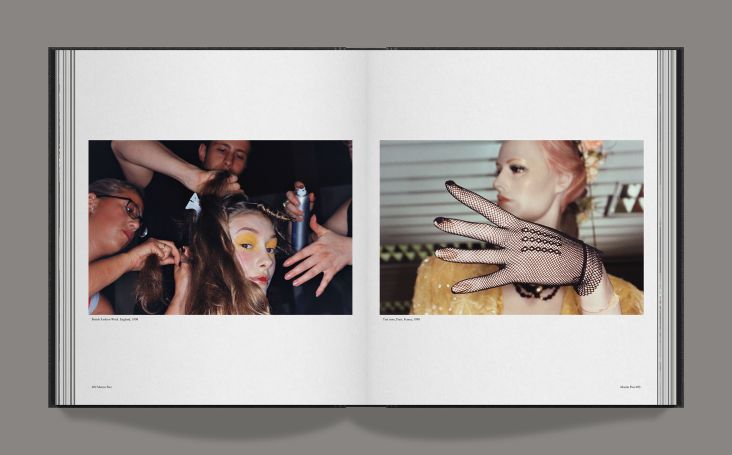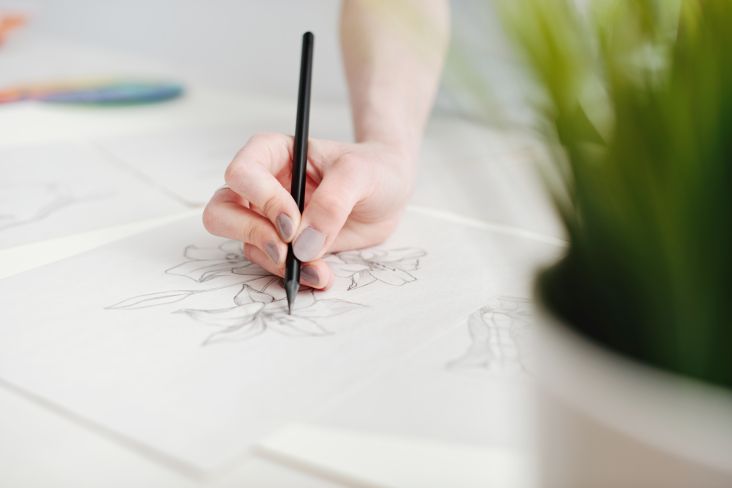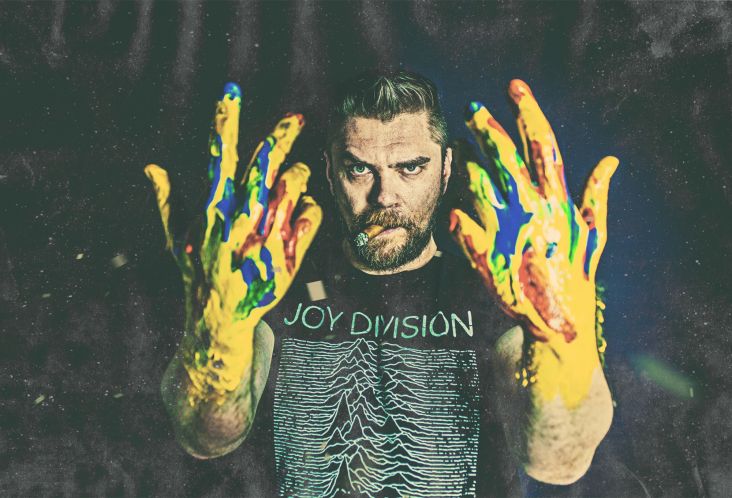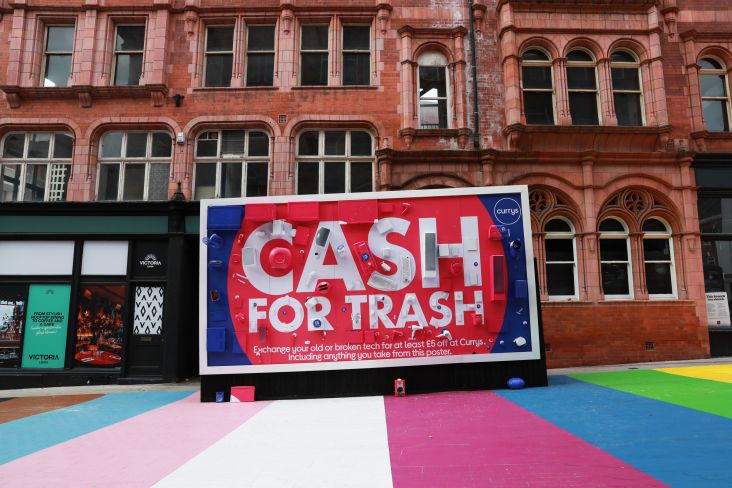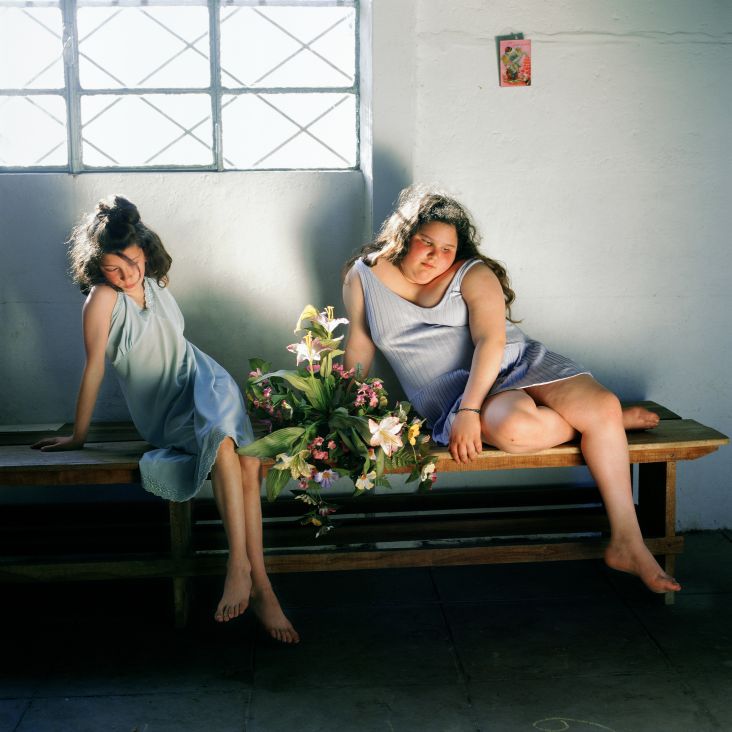Advice from 2022's top graduates for new creative students starting this September
In our recent Introducing series, we profiled 12 of the most exciting graduates entering the industry this year. Now we share their top advice for new students hoping to follow in their footsteps.

Image licensed via Adobe Stock
Are you starting university this September? Then you probably feel a weird mixture of excitement, apprehension and sheer terror. But the good news is that if you're planning to enter a creative profession, you're not alone.
In our experience, this community is very supportive, and you'll find lots of help on hand from students, tutors and fellow creatives everywhere. And the best thing is, you'll be standing on the shoulders of giants. Past generations of graduates have already made all the mistakes that can be made, allowing you to learn from them.
In this article, we share top advice from 12 leading creative graduates from the class of 2022. So whether you're a fresh-faced school leaver, a creative taking a new direction mid-career, or a mature student looking to reinvigorate their practice, you'll find great tips here to guide you on your way.
1. Don't rush things
It's difficult to avoid comparing yourself to your peers. And that can lead to frustration about your own lack of progress. But as figurative painter Shaqúelle Whyte points out, it's not about them; it's about you.
So instead of obsessing over others, he recommends focusing on your own journey. "People take different amounts of time," he reasons. "Some 21-year-olds know what they're doing, and some 28-year-olds don't have a clue. But it's about judging your own success by what you think you're capable of. You'll be alright if you're constantly working towards something. It will sort itself out. Don't worry too much, and keep pushing harder."
2. Don't overthink things
Some people have a clear plan for their creative career from the start, and that's fine. But not everyone works in that way, and not everyone has to.
"It's okay to feel like you don't know what you're doing and that you're not as good as your peers," says fashion designer Bethany Williams. "Because trust me, your peers probably feel the same way! Don't try to create what you think others expect from you. Trust yourself and your instincts. You've made it this far for a reason. Also, know what support or accessibility options are available to you and don't be ashamed to use them."
3. Have fun
Why so serious? It's easy to forget that being a creative should be fun! After all, it's not like you're working down a mine. So as designer and D&D New Blood award winner Tom Morgan recommends: "Follow what makes you excited. Don't be pressured to find a style. A style can be anything you want it to be.
"Most importantly, have fun creating; don't overthink. To not overthink is the best advice because I used to overthink everything. Believe in your work and ideas."
4. Take lots of breaks
Stress is a natural and necessary part of working as a creative but within reason. "My tutor, Mike Calandra Achode, told our class that stress can be good, as it means you're trying your hardest, but it should never get to the point where you become unhealthy," says designer Christina Poon.
"Being a designer will never be a linear process, and taking breaks can sometimes bring you the inspiration you need," she adds. "His advice smoothened the transition of my final projects and to our showcase, which set back the looming pressure of deadlines and graduating."
5. Rejections aren't the end of the world
Part of working as a creative is having your work rejected. And on one level, that sucks. But look at the bigger picture, and it's not always a bad thing, believes illustrator and animator Tintin Lindkvist Nielsen.
"It's okay to get no's when applying for jobs or entering competitions," he believes. "There'll probably be many of those, but I think it's important to remember you only need one 'yes'. It's also important not to take any rejections personally. It doesn't mean that your work is bad; it can simply mean it wasn't the right fit for that specific job – but it will be a perfect match for something else."
6. Never stop improving
When you get into the swing of things, it's easy to think you know everything. But in reality, you never do, at any stage of your career. Which is why the main advice offered by illustrator and animator Hannah Vernon is to always be learning.
"Over the summer, while I was at university, I learned how to use new software and did online courses in subjects like gesture drawing and animation," she adds. "And I'll do the same now that I've finished my degree. I'm never completely happy with my work, but I see this as a positive, as it encourages me to keep learning and improving."
Stay true to yourself. Don't create art that everyone will like or is perfect because it's impossible. Someone will always find fault or dislike something you've created. But who cares? It's art. Be unapologetically you.
7. Don't play it safe
Whether fear of the unknown or plain laziness, it's tempting to reach for tried-and-tested approaches every time you start a new project. But that would be a mistake, believes illustrative graphic designer Farah Girach.
Instead, she urges you to: "Get out of your comfort zone. Don't be afraid to approach people or start a conversation; it can lead you to endless possibilities. Create your own opportunities, whether collaborating, networking, or sharing work on social platforms. And most of all, don't lose your creative spark!"
8. Work hard
It might sound obvious, but some people genuinely think they can make it as a creative with minimal work if they just have the right ideas. But for the vast majority of creatives, that's just not the reality.
"You have to be prepared to work incredibly hard if you want to make something out of yourself in the creative industry," stresses photographer Daniel Dayment. "It's a highly competitive world, and I think it's important that you stay an individual. Don't try to be anyone else, and stay strong with your ideas.
"Nothing happens overnight, and at times you may begin to think, 'What is the point?' But if you just trust your process and continue to make work, then opportunities will come your way from places you probably didn't know existed."
9. Follow your passions
It's a cliche because it's true: you make your best work when you're truly engaged with a project on a personal level. So illustrator Alicia Perkins advises you: "find what you are passionate about – something that makes you get excited to do a brief for it. Personally, my best work was on stuff I was interested in, even if it was just a movie I loved. You'll do plenty of work just for money, but the pieces you are inspired by will be what people remember you for because they will grab their attention."
10. Don't just do digital
We largely live in a digital world. But your creative outlook will be limited if you only work digitally, believes fine art photographer Chester Forman.
"An important practice as a photographer is to make physical things," he notes. "With a modern photography workflow, it's too easy to retain all of your work on a computer screen and never appreciate the materiality of your work. Producing prints, zines and books are some of my favourite ways to evaluate my photographs in relation to each other and determine the next steps for a project."
11. Be true to yourself
Everyone suffers from imposter syndrome, even the world's most successful creatives. That can lead us to try to please everyone and be all things to all people. But ultimately, that won't get you anywhere in your career.
Instead, advises illustrator and designer Chloe Watts: "Believe in yourself and your work. In education, it can be easy to outsource this belief to your tutors, but as a practitioner, you need to have that confidence come from within you. I'd also say to make as many connections as possible and build your own creative network."
Art director and fashion illustrator Thomas David Cornwell couldn't agree more. "Stay true to yourself," he advises. "Don't create art that everyone will like or is perfect because it's impossible. Someone will always find fault or dislike something you've created.
"I've constantly been told my ideas are inappropriate," he adds. "And because I include taboo topics, some look down on my art. They might say it's not realistic enough, it's too sexual, and question why it always has to be gay. But who cares? It's art. Be unapologetically you, and stop asking for permission or an excuse to do something. If you want to, do it.
"Because if you search for approval, you'll be wasting your time. Have fun, be expressive and create whatever your heart desires, no matter who tells you not to. To all my teachers, classmates and those along the way who told me my ideas were too much and too queer – thank you for telling me not to because you only made me want to do it more."





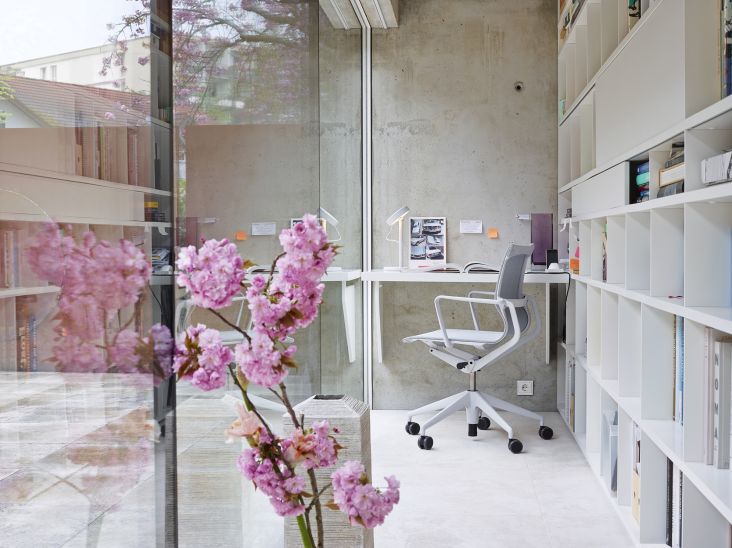
 using <a href="https://www.ohnotype.co/fonts/obviously" target="_blank">Obviously</a> by Oh No Type Co., Art Director, Brand & Creative—Spotify](https://www.creativeboom.com/upload/articles/6e/6ed31eddc26fa563f213fc76d6993dab9231ffe4_732.jpg)
 by Tüpokompanii](https://www.creativeboom.com/upload/articles/58/58684538770fb5b428dc1882f7a732f153500153_732.jpg)








